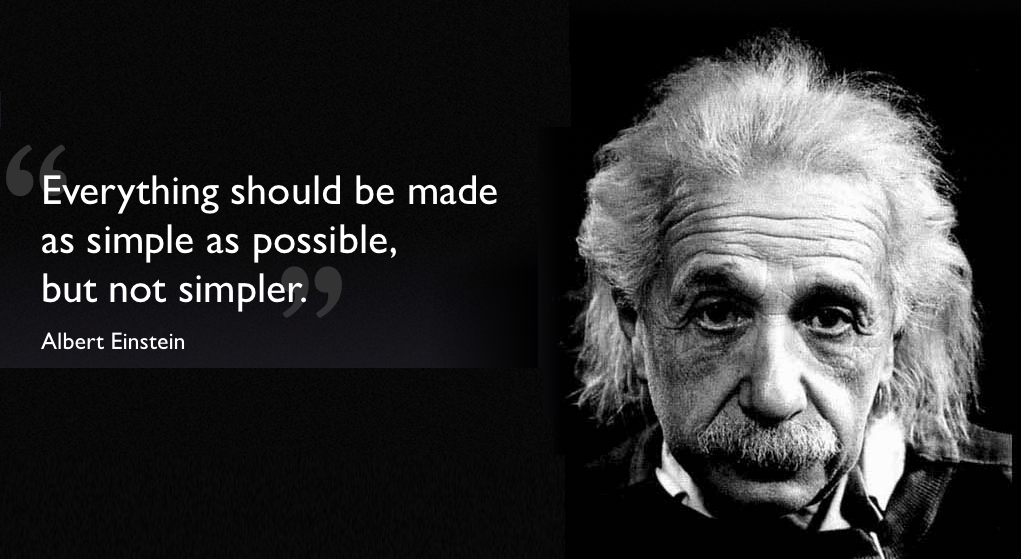We’ll wrap up our discussion on simplicity today by addressing how we can make the recruiting process feel simple to candidates who are engaging with your organization.
People are attracted to things they perceive as simple, and attraction changes the nature of recruiting.
If people are drawn to you and your team, it puts you in control of the recruiting process by allowing you to select the most talented candidates.
How do you make your recruiting process simple? It’s not as easy as it may sound.
Albert Einstein once said, “Everything should be made as simple as possible, but not simpler.”
This is true for the recruiting process. What seems simple and attractive to the candidate, takes quite a bit of planning and forethought.
Components of a Simple Process
In our last WorkPuzzle, I introduced you to Jory Mackay’s formula for making a process feel simple.
Prototypical elements are the basis of simplicity.
A prototypical element is something a person expects to see as part of any process or experience. For example, purchasing something at a grocery store seems simple because it contains many prototypical elements. Self-checkout systems (when they were first introduced) seemed complicated because common components are missing.
When individuals consider changing careers, there are many prototypical elements they expect to be part of the recruiting process. Most of these elements are initially related to language and terms.
Candidates expect to hear terms like: interview, work history, salary, benefits, career path, educational background, promotions, etc.
However, they often hear terms like: full-commission, independent contractor, licensing school, commission split, sphere-of-influence, work a farm, lead generation, etc.
What seems simple to you (is a commission split really that hard to understand?) seems complicated to the candidate because it doesn’t match the candidates’ prototypical elements for hiring.
The solution to this part of the problem is to change your language early in the recruiting process. There will be plenty of time later to discuss specifics of the job. The more being a real estate agent “sounds” like something they’re used to hearing, the more simple the process will seem.
Create your own product placements.
Visual cues are critical to making things seem simple, and this is where real estate companies have a huge advantage over traditional companies.
Since real estate companies serve consumers, much money is spent on consumer advertising in local markets. Since people generally live in houses, almost everyone has day-to-day interaction with real estate. All these visual cues and connections add up in the candidates’ minds.
Talk about how common it is to work and interact with the real estate industry and your company. Unless something feels familiar it will not seem simple.
Be ‘same-same, but different.’
In his article, Jory tells a cute story about traveling in Indonesia where young street vendors (children) were selling everything from bracelets to scooters. The vendors’ products were often very similar or even identical.
To differentiate themselves, the kids learned the English phrase “same-same, but different.”
You can do the same thing when talking to candidates, but don’t use your real estate competitors as the comparison. You must use their previous jobs (or other jobs they would be considering) as the basis for the prototypical elements.
For example, you might refer to a sphere of influence as a customer database. The conversation could go something like this:
“Each of our agents identifies and maintains a sphere of influence. It’s what most companies would call a customer database, but it’s a little different…”
If all three of these “make it simple” components are applied to the various systems in your organization, it will change the way candidates experience your company.
It will seem much more simple, and simple is always more attractive.
Questions or Comments? Reply to your WorkPuzzle subscription email.
Didn’t get the WorkPuzzle email? Subscribe below. We promise not to share your email with others or use it for any other purpose but delivering WorkPuzzle notices.



